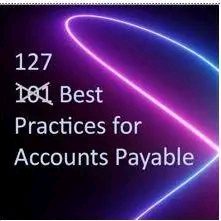How to Calculate Period Costs in Managerial Accounting

In managerial accounting, accurately calculating and understanding period costs is crucial for effective financial decision-making.
In this article, we will provide a comprehensive guide to help you grasp the concept of period costs and how they impact your business’s financial statements.
By the end, you’ll have a solid understanding of how to calculate period costs and their significance in managerial accounting.
What Are Period Costs?
Period costs, also known as non-manufacturing costs, are expenses incurred during a specific accounting period that are not directly tied to the production process.
Unlike product costs (such as direct materials and direct labour), which are attributed to the manufacturing of goods, period costs are associated with the overall operations of a business.
Calculating Period Costs
To calculate period costs accurately, you need to consider the following types of expenses commonly classified as period costs:
1. Selling Expenses
Selling expenses include costs incurred in promoting and selling products or services. These expenses may include advertising, sales commissions, marketing campaigns, distribution costs, and customer service expenses.
2. General and Administrative (G&A) Expenses
G&A expenses encompass the costs of running the business as a whole. This category includes salaries of non-production employees, rent, utilities, office supplies, legal fees, insurance, and other administrative expenses.
3. Research and Development (R&D) Costs
If your business engages in research and development activities, the associated costs are considered period costs. These expenses include research costs, product design, prototype development, and intellectual property protection.
4. Depreciation and Amortization
Depreciation refers to the allocation of the cost of tangible assets over their useful life, while amortization pertains to the allocation of the cost of intangible assets. These costs are spread out over time to match their contribution to revenue generation, and they are considered period costs.
FAQs
Are period costs the same as operating expenses?
Yes, period costs and operating expenses are often used interchangeably. Both terms refer to the costs incurred in running a business that are not directly tied to production.
How do period costs differ from product costs?
Product costs, such as direct materials and direct labor, are directly associated with the manufacturing process. In contrast, period costs are incurred outside of the production process and are more focused on the overall operations of the business.
Can period costs be capitalized as assets?
No, period costs cannot be capitalized as assets. They are recognized as expenses in the period they are incurred, rather than being recorded as assets on the balance sheet.
How do period costs affect financial statements?
Period costs are expensed in the period they are incurred, and they reduce the net income reported on the income statement. They are not included in the cost of goods sold calculation, as they are not directly related to the production of goods.
Also Read: How to Calculate Period Costs in Accounting






Please send me your email address, because I have been trying to get letter of non indibetedness ever since I clear my loan you fail to clear my name at the CBN credit score and it is really affecting me
How can I contact altracred finance investment limited